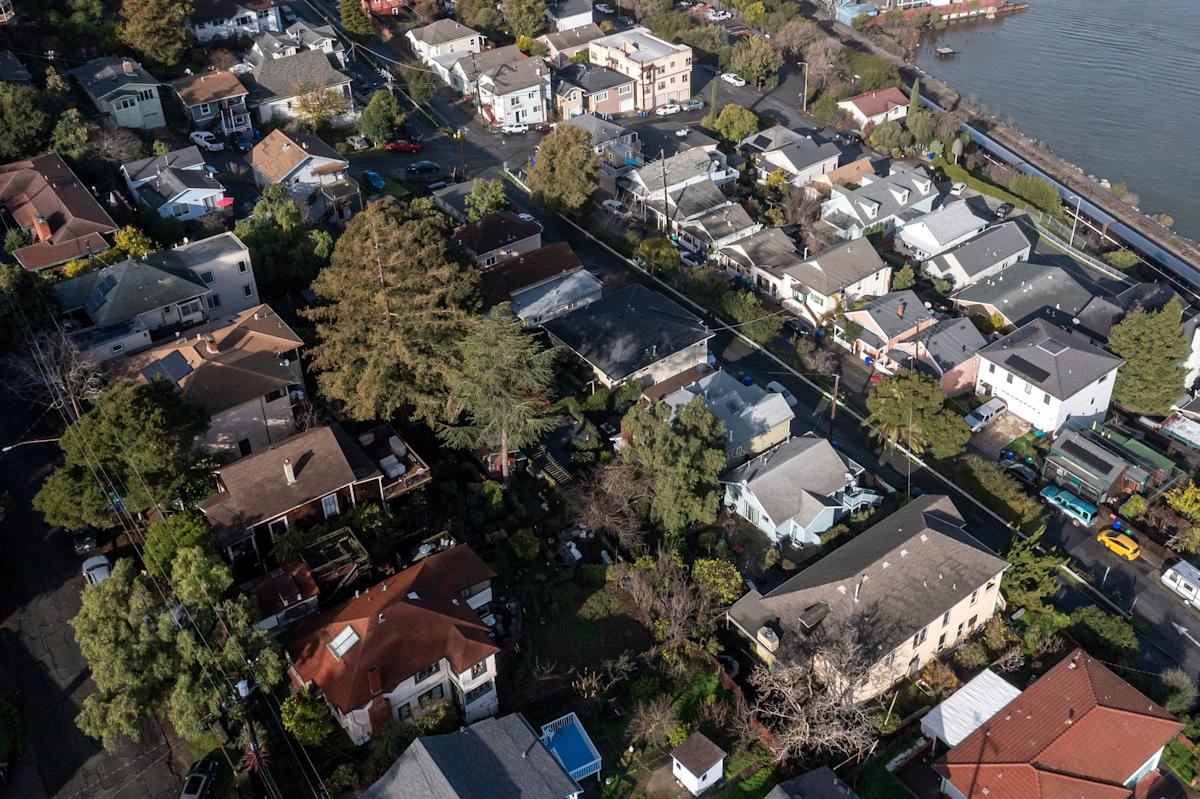(Bloomberg) — Days after Donald Trump’s party lost several key election contests that centered on cost-of-living concerns, the president floated the prospect of a 50-year mortgage to help voters tackle one of their top concerns: housing affordability.
Most Read from Bloomberg
“All it means is you pay less per month,” Trump said in an interview that aired on Monday.
Yet the president’s idea is struggling to gain traction in the housing industry, as experts largely dismiss it as a short-sighted model that provides little cost relief and ends up hurting homeowners over the long term.
Paying for a home over five decades would increase the amount of interest homeowners would pay while slowing the amount of equity they build in their homes. Experts also caution that the plan could stoke demand that further raises home prices in a market constrained by a lack of supply.
“A 50-year mortgage dramatically depreciates the biggest value of homeownership — wealth building,” said David Dworkin, president and CEO of the National Housing Conference. “Over time, the loss of equity quickly overcomes any savings on payment.”
Read: A 50-Year Mortgage to Double Interest Paid Over Tenor, UBS Says
Consider a $420,000 mortgage with 20% down and a 6.3% interest rate. The monthly payment would be $236 lower for a 50-year loan than a 30-year loan, said Lawrence Yun, chief economist at the National Association of Realtors.
But “the total cost of the home would rise to roughly $1.1 million, with nearly $360,000 more in interest paid over the life of the loan,” Yun said. “It would also take almost 40 years to pay off half the balance, meaning most borrowers would not begin building meaningful equity until the final decade.”
In a world where people are buying their first home at an older age – the median age of a first-time buyer has risen to a record of 40 years old, NAR reported last week – that’s a problem.
The idea would also take time to implement. For starters, the Consumer Financial Protection Bureau would have to amend the Qualified Mortgage rule to allow loans with terms longer than 30 years to be eligible for that designation – a process that would take at least a year to carry out, given the notice-and-comment requirements involved with rulemaking.
Read: Trump Defends 50-Year Mortgage Plan, Calling It ‘Not a Big Deal’
Fannie Mae and Freddie Mac, the two government-controlled companies behind more than half the residential mortgage market, could theoretically create a market for 50-year loans in the interim by buying them from lenders. But lender appetite would depend to some extent on the legal liability protection afforded by the Qualified Mortgage rule.
